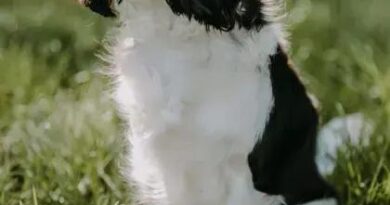What is greyhound care
Understanding Greyhound Care
Greyhound care encompasses a variety of essential practices aimed at ensuring the health and well-being of these elegant and gentle dogs. Known for their speed and grace, Greyhounds require specific attention to their physical and emotional needs. This guide will delve into the key aspects of Greyhound care, providing insights that every owner should know.
Nutrition for Greyhounds
Proper nutrition is a cornerstone of Greyhound care. These dogs have unique dietary requirements due to their lean physique and high metabolism. A balanced diet rich in high-quality proteins, healthy fats, and essential vitamins is crucial. Owners should consult with veterinarians to determine the best food options, ensuring that their Greyhound receives the right nutrients to maintain energy levels and overall health.
Exercise Requirements
Despite their reputation as racing dogs, Greyhounds are surprisingly low-energy at home. However, they still require regular exercise to keep them physically fit and mentally stimulated. Daily walks, playtime in a secure yard, and occasional runs are essential components of Greyhound care. Owners should be mindful of their dog’s limits, as over-exercising can lead to injuries.
Grooming Needs
Grooming is another important aspect of Greyhound care. These dogs have short coats that require minimal maintenance, but regular brushing helps to remove loose hair and dirt. Bathing should be done as needed, typically every few months or when they become particularly dirty. Additionally, owners should pay attention to nail trimming and dental hygiene to prevent health issues.
Health Care and Veterinary Visits
Routine veterinary care is vital for Greyhound health. Regular check-ups, vaccinations, and preventative treatments for parasites are essential to keep these dogs healthy. Greyhounds are prone to certain health issues, such as bloat and hip dysplasia, so owners should be vigilant and consult their veterinarian if they notice any unusual symptoms or behaviors.
Socialization and Training
Socialization is a key component of Greyhound care. These dogs benefit from exposure to various environments, people, and other animals. Early socialization helps prevent behavioral issues and promotes a well-adjusted pet. Training should be positive and consistent, focusing on basic commands and good manners to ensure a harmonious relationship between the Greyhound and its owner.
Creating a Safe Environment
Providing a safe and comfortable living environment is crucial for Greyhound care. Owners should ensure that their home is free from hazards, such as toxic plants or small objects that could be swallowed. Greyhounds are known for their ability to escape, so secure fencing and supervision during outdoor activities are necessary to keep them safe.
Understanding Greyhound Behavior
Understanding the behavior of Greyhounds is essential for effective care. These dogs are known for their gentle and affectionate nature, but they can also exhibit anxiety or fear in certain situations. Owners should be patient and observant, learning to recognize their dog’s body language and emotional needs to provide the best care possible.
Adoption and Rescue Considerations
Many Greyhounds are retired racing dogs in need of loving homes. Adopting a Greyhound from a rescue organization can be a rewarding experience. Potential owners should be prepared for the unique challenges and joys that come with caring for a retired racer, including adjusting to home life and addressing any behavioral issues that may arise.
Conclusion: The Joy of Greyhound Ownership
Caring for a Greyhound can be a fulfilling and joyful experience. By understanding their specific needs in terms of nutrition, exercise, grooming, and socialization, owners can provide a loving and supportive environment for these remarkable dogs. With the right care, Greyhounds can thrive as cherished family members.



